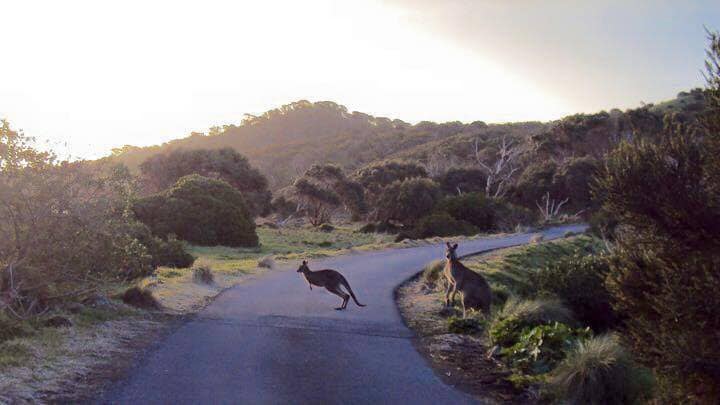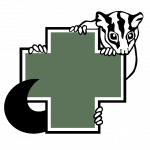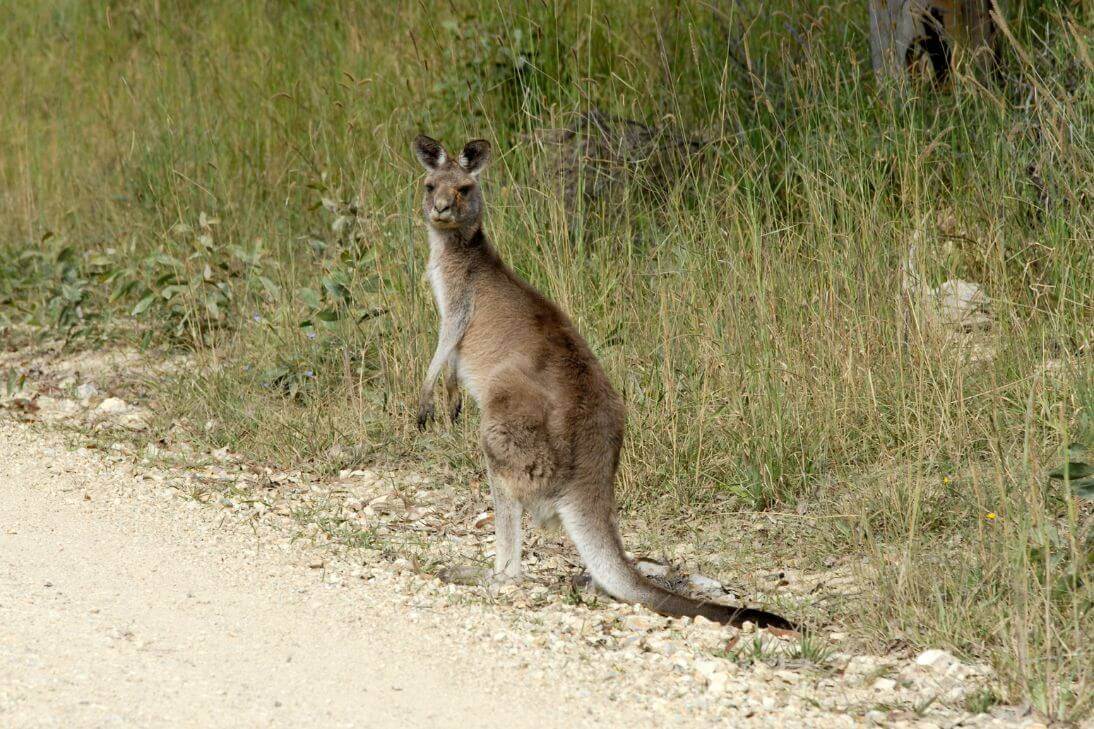“What To Do if I Hit a Kangaroo?”
Stay calm – it happens. Pull over in a safe spot, turn your hazard lights on, and keep your eyes on the animal. This is important – older pouch joeys can exit the pouch and take off. Adults are often filled with adrenaline and will leave the road to collapse a short way into the bush. Often, without clues from you, we don’t find them. If you can stay on-site until a rescuer arrives, we appreciate it.
“What should I do if I can’t stay?”
We understand. If you have something in the car that could help us locate the animal, please make it visible from the road. This could be anything, from a McDonalds cup to a plastic bag tied to a tree! Take note of your surroundings, nearby buildings, mailboxes etc. “Drop a pin” on your maps app and take some photos of the location to send to the rescuer if you can.

“It’s badly injured – should I just call the police?”
Generally, no. Hunter Wildlife Rescue has a great working relationship with NSW Police and utilise them when we need to. However, they may not know how to properly check pouches and often don’t have time to search for kangaroos that may have moved away from the roadside. Police are also required to prioritise people and property over calls for wildlife, meaning that they often take much longer to arrive on scene than our trained rescuers. Always give us a call first, and we will liaise with police if the situation requires.
“Can I keep the joey as a pet?”
We wish that wildlife were as easy to keep healthy as a cat or dog… our lives would be easier! The reality is that macropods reared by untrained, well-meaning people do very poorly in the long run. Our carers invest an immense amount of time and energy into learning how to rehabilitate these animals successfully. Do the right thing and call our hotline as soon as you can. If this interests you, consider joining us and becoming a licensed carer?
“Should I do a Pouch Check?”
Yes, if it safe to do so. If you come across a deceased animal and have assessed the situation to be safe then you can certainly perform a pouch check. See our instructions here > hunterwildlife.org.au/pouch-checking-guide

